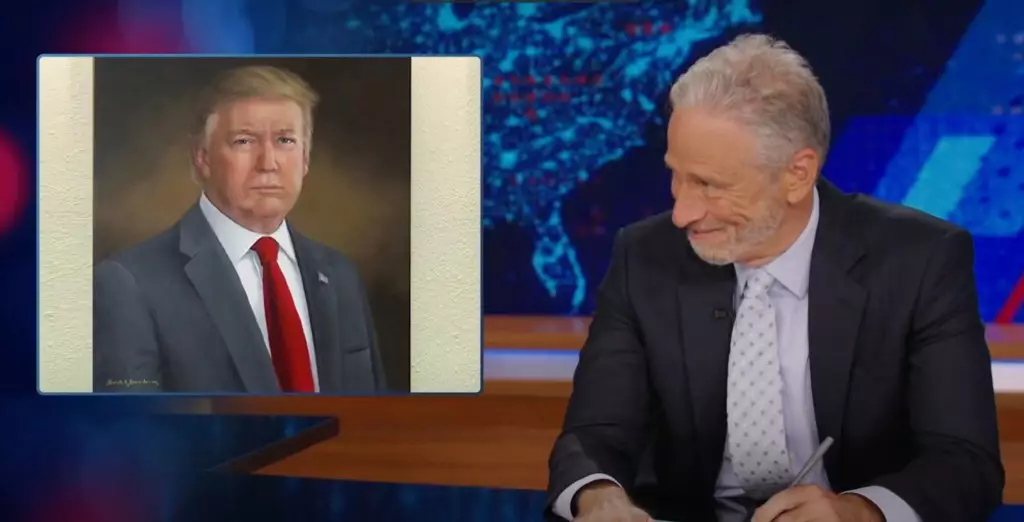In an increasingly polarized political landscape, the rhetoric surrounding free speech has reached a fever pitch, with various factions wielding it as both a shield and a sword. Jon Stewart’s recent monologue on *The Daily Show* revels in this dismal reality, using humor to dissect the absurdity woven into the fabric of contemporary political discourse. What stands out is not merely Stewart’s sharp wit, but also his relentless pursuit of truth amidst a sea of hypocritical narratives emanating from both sides of the political spectrum. The focus on free speech, particularly the contradictions exhibited by the Republican party, unveils a profound issue that exposes the insincerity masquerading as democratic dialogue.
Free Speech: A Tool for Manipulation
Stewart’s comedic lens highlights the Republican Party’s stance on free speech, particularly their apparent disregard for the principle unless it serves their agenda. This selective endorsement of free expression is emblematic of a broader trend where political entities leverage ideals as mere talking points rather than core values. During his monologue, Stewart starkly declares, “These guys don’t give a f*ck about free speech,” presenting a stark critique that isn’t just amusing; it’s a reflection of a reality where concepts like “freedom of speech” are contorted to fit personal narratives.
In an effective juxtaposition, Stewart recalls a time when journalists would painstakingly earn trust to uncover truths tucked away in government layers. Today, the barriers are lower; a thoughtless group chat can leak sensitive information, a metaphor for how carelessly free speech can be wielded. One can’t help but question if this is empowerment or an utter disservice to journalistic integrity. The absurdity prompts audiences to reflect on whether individuals truly care about free speech or if they use it as a convenient weapon to discredit opponents.
The Illusion of Thought Police
Stewart particularly zeros in on the rampant hypocrisy within the MAGA faction, who vocally decried “thought policing” during Biden’s presidency while concurrently attempting to stifle voices that clash with their views. The monologue challenges viewers to dissect the irony: Republicans have painted their opposition as the real threat to free speech while they themselves engage in practically censorial behavior against dissenting opinions.
Through clips of Trump advocating for restrictions on news outlets that challenge his narrative, Stewart effectively encapsulates this dynamic, underlining how the conversation around free speech has transformed into an echo chamber for those in power. Stewart’s analogy comparing the absurdity of political statements to “Watch What Happens Live” creates a comedic bridge but simultaneously serves to highlight the surreal nature of this political theater. The stark contrast between their vocal promotion of free speech as a concept versus their tangible actions reveals a systemic illness—hypocrisy.
A Culture of Faux Outrage
The issue of free speech culminates in a culture of faux outrage; when politicians like Trump, as noted by Stewart, demand that unfavorable depictions (such as an unflattering painting) be removed, one must ponder the efficacy and sincerity of these claims. Stewart’s comedic timing serves to magnify the irony inherent in such demands. If an individual is unable to withstand the scrutiny and satire required in a democratic society, then the very notion of free speech becomes questionable.
The crux of Stewart’s argument is not merely about hypocrisy but about the need to re-evaluate the essence of free speech in politics. It ought to thrive as a foundational principle, not a weapon for persecution or defense mechanisms wielded by those seeking power. His conclusion challenges the audience to consider: What does freedom of expression mean if it is selectively deployed as a political instrument?
Stewart’s segment becomes a poignant reminder that true democratic discourse requires humility and a willingness to face uncomfortable truths—the very convictions undermined by the ever-present hypocrisy of political figures. In a climate where the stakes are high, and public sentiment is easily swayed, unmasking the illusions could be the first step toward reclaiming the sanctity of free speech for everyone, and not just the privileged who wield it shamelessly.
